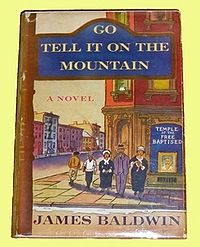of money-第1部分
按键盘上方向键 ← 或 → 可快速上下翻页,按键盘上的 Enter 键可回到本书目录页,按键盘上方向键 ↑ 可回到本页顶部!
————未阅读完?加入书签已便下次继续阅读!
Of Money
by David Hume(1752)
Money is not; properly speaking; one of the subjects of commerce;
but only the instrument which men have agreed upon to facilitate the
exchange of one commodity for another。 It is none of the wheels of
trade: It is the oil which renders the motion of the wheels more
smooth and easy。 If we consider any one kingdom by itself; it is
evident; that the greater or less plenty of money is of no
consequence; since the prices of commodities are always proportioned
to the plenty of money; and a crown in HARRY VII's time served the
same purpose as a pound does at present。 It is only the public which
draws any advantage from the greater plenty of money; and that only in
its wars and negociations with foreign states。 And this is the reason;
why all rich and trading countries from CARTHAGE to GREAT BRITAIN and
HOLLAND; have employed mercenary troops; which they hired from their
poorer neighbours。 Were they to make use of their native subjects;
they would find less advantage from their superior riches; and from
their great plenty of gold and silver; since the pay of all their
servants must rise in proportion to the public opulence。 Our small
army of 20;000 men is maintained at as great expence as a FRENCH army
twice as numerous。 The ENGLISH fleet; during the late war; required as
much money to support it as all the ROMAN legions; which kept the
whole world in subjection; during the time of the emperors。
The greater number of people and their greater industry are
serviceable in all cases; at home and abroad; in private; and in
public。 But the greater plenty of money; is very limited in its use;
and may even sometimes be a loss to a nation in its commerce with
foreigners。
There seems to be a happy concurrence of causes in human affairs;
which checks the growth of trade and riches; and hinders them from
being confined entirely to one people; as might naturally at first be
dreaded from the advantages of an established commerce。 Where one
nation has gotten the start of another in trade; it is very difficult
for the latter to regain the ground it has lost; because of the
superior industry and skill of the former; and the greater stocks; of
which its merchants are possessed; and which enable them to trade on
so much smaller profits。 But these advantages are compensated; in some
measure; by the low price of labour in every nation which has not an
extensive commerce; and does not much abound in gold and silver。
Manufactures; therefore gradually shift their places; leaving those
countries and provinces which they have already enriched; and flying
to others; whither they are allured by the cheapness of provisions and
labour; till they have enriched these also; and are again banished by
the same causes。 And; in general; we may observe; that the dearness of
every thing; from plenty of money; is a disadvantage; which attends an
established commerce; and sets bounds to it in every country; by
enabling the poorer states to undersell the richer in all foreign
markets。
This has made me entertain a doubt concerning the benefit of banks
and paper…credit; which are so generally esteemed advantageous to
every nation。 That provisions and labour should become dear by the
encrease of trade and money; is; in many respects; an inconvenience;
but an inconvenience that is unavoidable; and the effect of that
public wealth and prosperity which are the end of all our wishes。 It
is compensated by the advantages; which we reap from the possession of
these precious metals; and the weight; which they give the nation in
all foreign wars and negociations。 But there appears no reason for
encreasing that inconvenience by a counterfeit money; which foreigners
will not accept of in any payment; and which any great disorder in the
state will reduce to nothing。 There are; it is true; many people in
every rich state; who having large sums of money; would prefer paper
with good security; as being of more easy transport and more safe
custody。 If the public provide not a bank; private bankers will take
advantage of this circumstance; as the goldsmiths formerly did in
LONDON; or as the bankers do at present in DUBLIN: And therefore it is
better; it may be thought; that a public company should enjoy the
benefit of that paper…credit; which always will have place in every
opulent kingdom。 But to endeavour artificially to encrease such a
credit; can never be the interest of any trading nation; but must lay
them under disadvantages; by encreasing money beyond its natural
proportion to labour and commodities; and thereby heightening their
price to the merchant and manufacturer。 And in this view; it must be
allowed; that no bank could be more advantageous; than such a one as
locked up all the money it received; and never augmented the
circulating coin; as is usual; by returning part of its treasure into
commerce。 A public bank; by this expedient; might cut off much of the
dealings of private bankers and money…jobbers; and though the state
bore the charge of salaries to the directors and tellers of this bank
(for; according to the preceding supposition; it would have no profit
from its dealings); the national advantage; resulting from the low
price of labour and the destruction of paper…credit; would be a
sufficient compensation。 Not to mention; that so large a sum; lying
ready at command; would be a convenience in times of great public
danger and distress; and what part of it was used might be replaced at
leisure; when peace and tranquillity was restored to the nation。
But of this subject of paper credit we shall treat more largely
hereafter。 And I shall finish this essay on money; by proposing and
explaining two observations; which may; perhaps; serve to employ the
thoughts of our speculative politicians。
It was a shrewd observation of ANACHARSIS the SCYTHIAN; who had
never seen money in his own country; that gold and silver seemed to
him of no use to the GREEKS; but to assist them in numeration and
arithmetic。 It is indeed evident; that money is nothing but the
representation of labour and commodities; and serves only as a method
of rating or estimating them。 Where coin is in greater plenty; as a
greater quantity of it is required to represent the same quantity of
goods; it can have no effect; either good or bad; taking a nation
within itself; any more than it would make an alteration on a
merchant's books; if; instead of the ARABIAN method of notation; which
requires few characters; he should make use of the ROMAN; which
requires a great many。 Nay; the greater quantity of money; like the
ROMAN characters; is rather inconvenient; and requires greater trouble
both to keep and transport it。 But notwithstanding this conclusion;
which must be allowed just; it is certain; that; since the discovery
of the mines in AMERICA; industry has encreased in all the nations of
EUROPE; except in the possessors of those mines; and this may justly
be ascribed; amongst other reasons; to the encrease of gold and
silver。 Accordingly we find; that; in every kingdom; into which money
begins to flow in greater abundance than formerly; every thing takes a
new face: labour and industry gain life; the merchant becomes more
enterprising; the manufacturer more diligent and skilful; and even the
farmer follows his plough with greater alacrity and attention。 This is
not easily to be accounted for; if we consider only the influence
which a greater abundance of coin has in the kingdom itself; by
heightening the price of Commodities; and obliging every one to pay a
greater number of these little yellow or white pieces for every thing
he purchases。 And as to foreign trade; it appears; that great plenty
of money is rather disadvantageous; by raising the price of every kind
of labour。
To account; then; for this phenomenon; we must consider; that
though the high price of commodities be a necessary consequence of the
encrease of gold and silver; yet it follows not immediately upon that
encrease; but some time is required before the money circulates
through the whole state; and makes its effect be felt on all ranks of
people。 At first; no alteration is perceived; by degrees the price
rises; first of one commodity; then of another; till the whole at last
reaches a just proportion with the new quantity of specie which is in
the kingdom。 In my opinion; it is only in this interval or
intermediate situation; between the acquisition of money and rise of
prices; that the encreasing quantity of gold and silver is favourable
to industry。 When any quantity of money is imported into a nation; it
is not at first dispersed into many hands; but is confined to the
coffers of a few persons; who immediately seek to employ it to
advantage。 Here are a set of manufacturers or merchants; we shall
suppose; who have received returns of gold and silver for goods which
they sent to CADIZ。 They are thereby enabled to employ more workmen
than formerly; who never dream of demanding higher wages; but are glad
of employment from such good paymasters。 If workmen become scarce; the
manufacturer gives higher wages; but at first requires an encrease of
labour; and this is willingly submitted to by the artisan; who can now
eat and drink better; to compensate his additional toil and fatigue。
He carries his money to market; where he; finds every thing at the
same price as formerly; but returns with greater quantity and of
better kinds; for the use of his family。 The farmer and gardener;
finding; that all their commodities are taken off; apply themselves
with alacrity to the raising more; and at the same time can afford to
take better and more cloths from their tradesmen; whose price is the
same as formerly; and their industry only whetted by so much new gain。
It is easy to trace the money in its progress through the whole
commonwealth; where we shall find; that it must first quicken the
diligence of every individual; before it encrease the price of labour。
And that the specie may encrease to a considerable pitch; before
it have this latter effect; appears; amongst other instances; from the
frequent operations of t

![[hp鹿犬]speed and magic封面](http://www.baxi2.com/cover/22/22311.jpg)

![to dear myself[德哈]封面](http://www.baxi2.com/cover/23/23438.jpg)

![(瓶邪同人)细水-microsoft visual c++[师生瓶邪]封面](http://www.baxi2.com/cover/23/23711.jpg)
